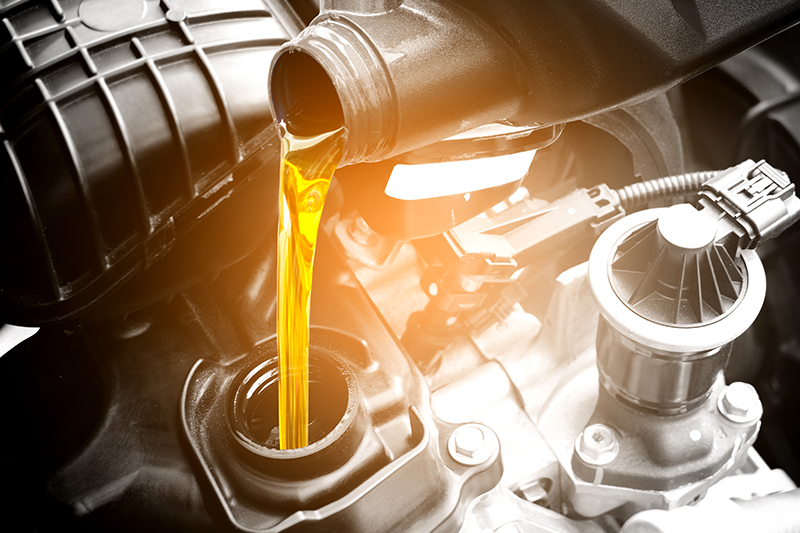
Data from the Department for Transport has shown people are making fewer trips and travelling fewer miles, with average vehicle mileage falling since 2002 from 9,000 miles a year to 7,000 miles in 2023.
Several factors are said to be driving the changes, including the rise in people working from home, as well as the cost of vehicle insurance, servicing and fuel all squeezing household and businesses’ budgets.
These changes in driver patterns can reportedly have detrimental consequences for a range of engine components, including lubricants.
Alan Outhwaite, Chair of the Technical Review Panel at industry body VLS, the Verification of Lubricant Specifications, said: “Lubricants need to flow efficiently in order to protect the vehicle. A lot of wear can take place in the first 10 minutes of start-up when the engine is cold. During shorter journeys, the oil does not get up to temperature. This means it doesn’t flow as well and doesn’t function as it should to lubricate and protect the engine.
“Water is a by-product of combustion, so if you’re not getting the oil up to temperature, small amounts of water can build up in the oil. This dilutes the oil, meaning that it will not function as designed. Water can also remain in the crankcase, which could lead to emulsification and corrosion, increasing wear in the engine while preventing efficient fuel combustion from taking place.
“Hybrid vehicles are even more complex and potentially more adversely affected by these changes in driver behaviour. In a hybrid vehicle, you could be using the battery for part of the journey, so it can take up to 25 minutes for the oil to get up to temperature. This is significantly longer than the 8-10 minutes usually required in a conventional combustion engine. Hybrid vehicles then have the complication of a high-powered start-up, with the car management system using the battery for the first ten miles and then requiring the engine to start as the vehicle joins the dual carriageway at high speed and high revs, creating a shock to the engine componentry and putting the lubricant under increased stress.
“Lubricants aren’t the only component compromised by shorter journeys. Shorter journeys don’t give batteries time to charge fully and recover from the significant amount of power required to start the engine. With an older vehicle (much more common these days, due to the ageing vehicle parc), if a battery is not in tip-top condition, drivers could end up with problems starting the car and having to replace batteries more often as shorter journeys reduce the battery life. Diesel Particulate Filters also don’t get time to regenerate, which increases the likelihood of blockages and costly DPF replacements.
“Multigrade oils are formulated to try and lessen the impact of stressors such as shorter journeys, but we can’t mitigate the effects completely. Oils are getting thinner in viscosity, and advanced additive technology is being used to protect engines during start-up and deliver fuel economy benefits. An increased build-up of water and other deposits due to shorter journeys can affect the performance of the additives in the oil, such as the anti-wear, anti-corrosion and dispersant additives. This can lead to a build-up of deposits in the engine and corrosion to engineered surfaces and components. These parts are manufactured to fine tolerances. Any corrosion on those surfaces is detrimental and can reduce the engine’s efficiency. Sophisticated engine management systems can compensate for some changes, but the likely consequences are poor fuel economy and increased emissions, something that no motorist wants.
“These changes in driver behaviour make oil changes more important than ever. It might be tempting for drivers to think that because they are doing fewer miles, they can save on servicing. Most cars recommend servicing at either a specific number of miles or a number of months, whichever comes first. With motorists driving fewer miles, the annual reminder will likely come first and should be adhered to.
“Workshops can help educate drivers about the importance of regular servicing and oil changes. Newer cars run on smart devices which monitor the vehicle. If the car software is telling the driver that the car needs servicing, they should respond accordingly. Drivers with older vehicles need to know the recommended service and oil drain intervals and stick to them. Putting it off might seem like a short-term saving, but it could result in engine damage and costs that could have been avoided.
“Technicians must be aware that older vehicles are just as susceptible as newer models to problems if the wrong oil is used. The vehicle parc is ageing, and the complexity of engines on the roads is increasing. Using the right oil is just as important for a 20-year-old car as it is for a two-year-old one. Technicians need to understand how important oil choice is and why they must carry a number of different engine oils and always use the correct product, whatever the vehicle and its typical usage.”









